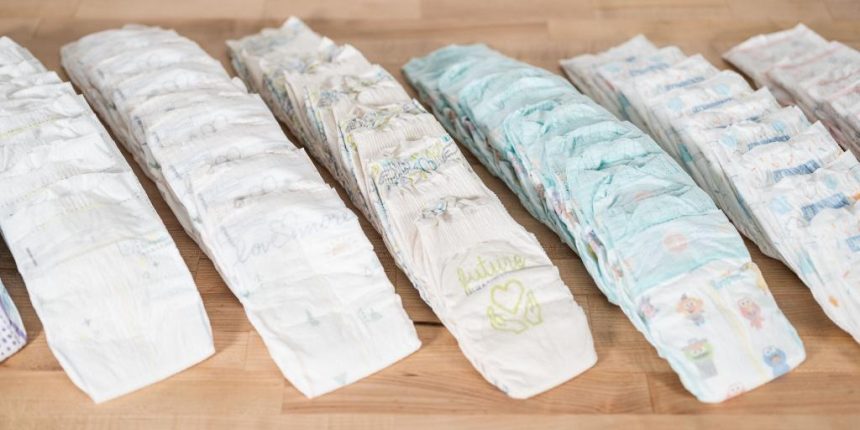Do Diapers Have an Expiration Date? Everything You Need to Know
As any parent or caregiver knows, the journey of diapering is filled with joyful moments and practical challenges. While we often focus on the essentials—size, absorbency, and comfort—there’s one question that frequently lingers in the back of our minds: do diapers actually have an expiration date? It’s a query that might seem trivial at first glance, but understanding the lifecycle of these everyday essentials can make a significant difference in ensuring both safety and effectiveness for our little ones. In this article, we’ll dive into the world of diapers, exploring their composition, potential shelf life, and best practices for storage. Whether you’re stocking up for a new arrival or simply curious about the lifespan of your stash, we’ve got you covered. Read on to uncover everything you need to know about the hidden expiration of diapers.
Understanding Diaper Shelf Life and Safety Standards
When it comes to diaper safety, understanding shelf life is crucial for any parent or caregiver. Although most brands do not explicitly label an expiration date, the effectiveness of diapers can diminish over time. Factors that affect shelf life include exposure to heat, moisture, and light. It’s advisable to store diapers in a cool, dry place to preserve their quality. Here are some points to consider regarding diaper shelf life:
- Material degradation: Over time, the materials used in diapers can break down, potentially impacting absorbency.
- Adhesive integrity: The tapes and fasteners may lose their stickiness, leading to fit issues.
- Odor retention: Prolonged storage can lead to the development of unpleasant odors.
To ensure your little one is safe and comfortable, check for visible signs of damage or changes in texture before using stored diapers. Also, many manufacturers provide guidelines or recommendations regarding shelf life, which often range from 2 to 3 years based on the manufacturing date. To assist your product choices, consider the following table that summarizes common features to look for:
| Diaper Feature | Ideal Condition |
|---|---|
| Absorbency | High |
| Elastic Bands | Intact and stretchy |
| Padding | Soft and undamaged |
Identifying Signs of Diaper Degradation
When it comes to ensuring the comfort and safety of your little one, being aware of potential diaper degradation is crucial. Over time, diapers can lose their effectiveness due to various factors such as heat, moisture, and even improper storage. Here are some indicators that a diaper may no longer be suitable for use:
- Discoloration: Look for any yellowing or fading of the diaper, which can suggest deterioration in the absorbent materials.
- Odor: An unusual or strong smell may indicate the breakdown of components and potential bacterial growth.
- Texture changes: If the diaper feels excessively stiff or crumbles easily between your fingers, it may have degraded.
- Packaging condition: Damaged or compromised packaging can lead to moisture exposure, reducing the diaper’s absorbency.
If you suspect that a diaper has degraded, it’s essential to check the manufacturer’s guidelines regarding shelf life and storage recommendations. To help you make informed choices, consider the following table highlighting key factors that influence diaper longevity:
| Factor | Impact on Diaper |
|---|---|
| Temperature | High temperatures can dry out the absorbent materials, affecting performance. |
| Humidity | Excess moisture can lead to mold or mildew formation inside the diapers. |
| Sunlight | UV rays may weaken the diaper materials, causing them to become less effective. |
| Storage Duration | Over time, even unused diapers can lose their absorbent capabilities. |
Maximizing the Longevity of Your Diaper Stockpile
Proper storage is the key to ensuring your diaper stockpile remains effective and safe for your little one. To maximize their longevity, consider these **essential tips** for maintaining the quality of your diapers:
- Temperature Control: Store diapers in a cool, dry place away from direct sunlight. Ideal temperatures range between 68°F to 72°F (20°C to 22°C).
- Avoid Humidity: Ensure the storage area is free from excess moisture, as dampness can degrade the materials used in the diapers.
- Seal Packaging: If the original packaging is open, transfer the diapers to a sealed container to protect them from dust and contaminants.
- Check for Damage: Regularly inspect your stock for any signs of damage or deterioration, such as tears in the packaging or discoloration.
Additionally, rotating your stock can help you use older diapers first. Consider implementing a system, such as labeling diapers by purchase date, to effectively manage your supply. Here’s a simple chart to help with the organization:
| Purchase Date | Quantity | Notes |
|---|---|---|
| January 2023 | 50 | Open, inspect monthly |
| March 2023 | 75 | Sealed, good condition |
| June 2023 | 60 | Monitor for wear |
Best Practices for Proper Diaper Storage and Usage
Ensuring proper storage of diapers can significantly extend their usability. Start by keeping them in a cool, dry place, away from direct sunlight and moisture, which can compromise their quality. Consider investing in airtight containers or clear storage bins to protect them from dust and humidity. Always check the packaging for specific storage recommendations. Additionally, it’s advisable to rotate your diaper stock, using the oldest boxes first to minimize waste.
In terms of usage, consistency is key. Make it a habit to inspect diapers for any visible signs of wear, such as changes in texture or discoloration. If you notice anything unusual, it may be best to discard them to ensure your baby’s comfort and safety. Furthermore, familiarize yourself with proper diaper application techniques to prevent leaks and skin irritations. A snug fit around the legs and waist, without being overly tight, helps keep your little one dry and happy.
Q&A
Q&A: Do Diapers Have an Expiration Date? Everything You Need to Know
Q: Do diapers actually have an expiration date?
A: While diapers don’t come with a strict expiration date like food products, they do have a shelf life. Manufacturers typically recommend using them within 2 to 3 years from the date of purchase to ensure optimal performance and safety.
Q: What happens to diapers over time?
A: As diapers age, they can lose their effectiveness due to changes in materials. The absorbent gel inside may degrade, and the outer layer could become less waterproof. Older diapers may not fit as snugly, leading to potential leaks and discomfort for little ones.
Q: How can I tell if my diapers have gone bad?
A: Signs of diminished quality in diapers include changes in texture, a strong chemical odor, or visible discoloration. If you notice any of these signs, it’s best to err on the side of caution and replace them.
Q: What’s the best way to store diapers for longevity?
A: To keep diapers in optimal condition, store them in a cool, dry place away from direct sunlight. Avoid places with high humidity, like bathrooms, since moisture can compromise the materials.
Q: Is it safe to use expired diapers?
A: While using slightly outdated diapers isn’t necessarily hazardous, they may not perform as intended. This could lead to unfortunate leaks, rashes, and discomfort for your baby, making it a gamble on the health and safety of your little one.
Q: Do cloth diapers expire similarly to disposable ones?
A: Cloth diapers can last significantly longer than disposables if properly cared for. With appropriate washing and maintenance, they can remain in good condition for many years. However, like disposables, fabric can degrade over time, especially if exposed to harsh chemicals or excessive heat.
Q: How can I make sure I never buy expired diapers?
A: Always check the packaging for manufacturing dates. Buying from reputable retailers and avoiding items that have been on the shelf for too long can also help. It’s wise to keep an eye on your diaper inventory and rotate your stock regularly.
Q: Are there any health risks associated with using old diapers?
A: While there are no known severe health risks from using expired diapers, potential issues such as skin irritation or diaper rashes can arise from decreased absorbency and effectiveness. For your baby’s comfort, always prioritize using diapers that are in good condition.
Q: Can I donate expired or old diapers?
A: Most charities and shelters typically do not accept open or expired diapers due to hygiene and safety concerns. However, unopened, properly stored diapers within their suggested shelf life can often be donated. Always check with the organization about their policies first.
Whether for convenience or health, understanding the lifespan of diapers can provide peace of mind for parents navigating the diapering journey. By following a few simple guidelines, you can ensure that your baby’s bottom stays comfortable and dry!
In Summary
while diapers may not come with an expiration date stamped on the packaging, it’s essential to recognize that their quality can diminish over time. The materials and adhesives used in diaper production can degrade, affecting their performance and safety. Parents and caregivers should keep an eye on storage conditions, ensuring diapers are kept in a cool, dry place, away from direct sunlight.
By being mindful of how long you’ve had a stash of diapers, you can help ensure that your little one stays comfortable, dry, and happy. Whether you’re navigating the world of parenting for the first time or are a seasoned pro, knowledge is your best ally. So, keep these insights in mind, and rest assured that you’re making the best choices for your baby. After all, a well-informed parent is a confident parent, ready to tackle any challenge that comes their way—even in the diaper aisle.


